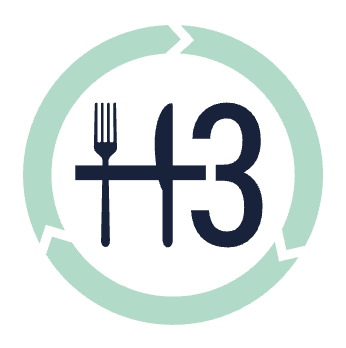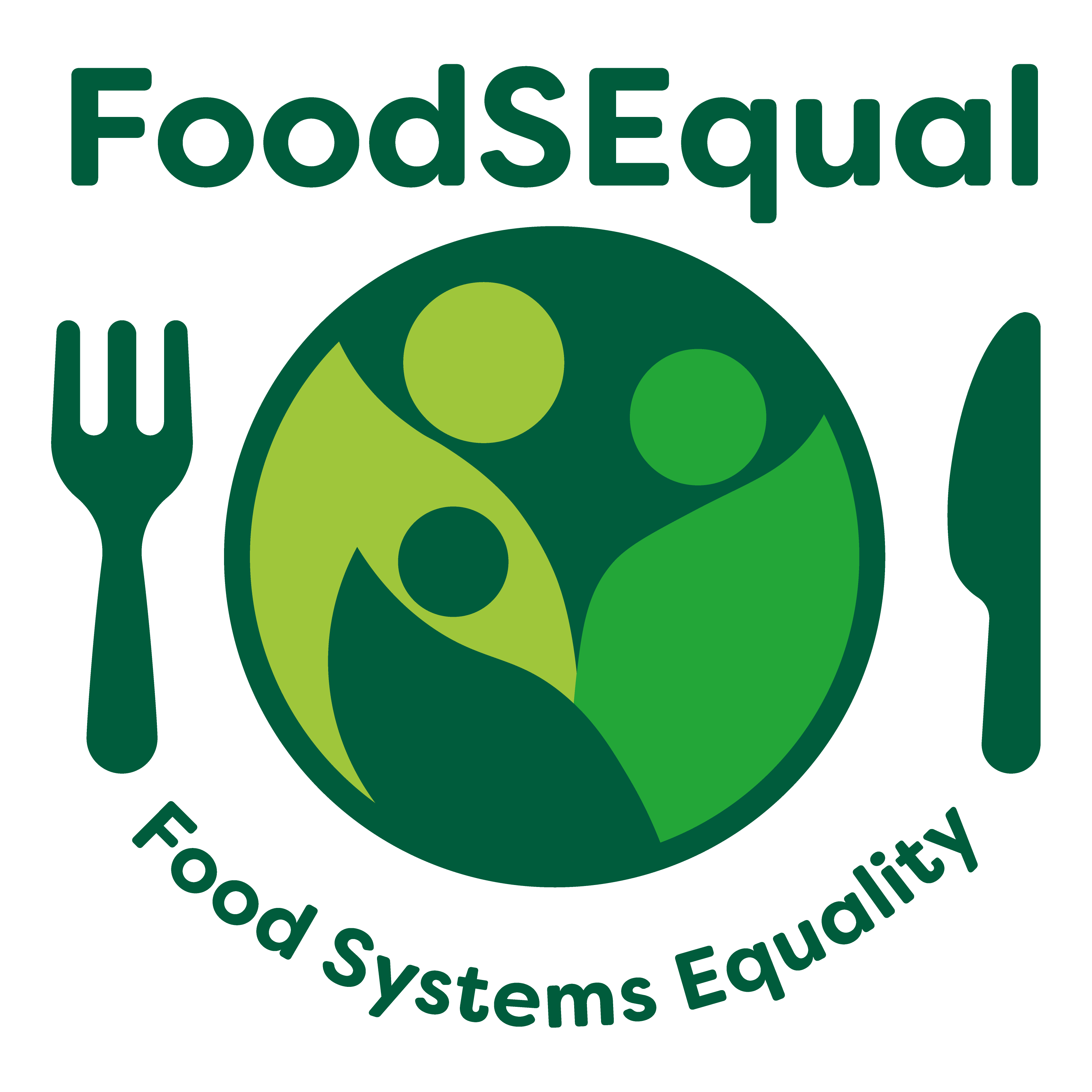The National Food Strategy, authored by Henry Dimbleby, was published as an independent review of the UK food system and its impact on public health and the environment. The review’s 2021 report outlined a comprehensive analysis of the current food system landscape, capturing food production through to consumption, as well as environmental, health and social outcomes.
The report presented 14 recommended actions for government, businesses and civil society to create a healthier, more sustainable UK food system. These recommendations were grouped into four overarching objectives:
- escape the junk food cycle and protect the NHS
- reduce diet-related inequality
- make the best use of our land
- create a long-term shift in our food culture
Using these four themes as a framework for transformation, we highlight below examples of how our projects are helping to address the recommendations in the National Food Strategy.

Healthy Soil, Healthy Food, Healthy People (H3)
- Increasing the consumption of dietary fibre (for example, for children through reformulation of foods eaten in school breakfast clubs) and changes to procurement, while learning from the experience of Danish Whole Grain Partnership
- Enhancing the nutritional value of foods that are already part of established UK diets, such as leafy greens, or biofortified beans
Activities:
Social Enterprise as a Catalyst for Sustainable and Healthy Local Food Systems
- Creating alternative spaces to eat healthier food
Activities:

The Mandala Consortium
- Using complex systems analysis to map the Birmingham food system, understand reinforcing and balancing feedback loops (such as the junk food cycle) and, in turn, identify the most powerful leverage points for food system interventions
- Working with a diverse group of stakeholders to prioritise interventions to achieve food system change that benefits people and planet, which we will rigorously evaluate
- Identifying co-ordinated actions that will push consumer demand for healthier and less environmentally damaging food over a tipping point that will lead to system change
Activities:
SNEAK
- Exploring interventions to reduce sugar, salt and fat in foods eaten outside the home
Activities:

FoodSEqual
- Empowering community researchers to develop, test and use participatory methods and help to evidence the dietary patterns of people on low incomes in different communities
- Co-creating interventions to improve the healthiness of diets in diverse disadvantaged communities
Activities:
Sus-Health
- Applying the Sus-Health index to meals in fast food restaurants
- Motivating disadvantaged communities to make more sustainable meal options
Activities:
FixOurFood
- Co-developing a local food action plan for Sheffield
- Building a network of primary schools across Yorkshire, providing evidence to underpin positive change in the procurement and provision of affordable, healthy and sustainable food for all children
Activities:
Raise the Pulse
- Encouraging the consumption of a healthier diet which is higher in fibre, micronutrients and plant-based protein
- Providing increased choice of healthy plant-based foods
Activities:
BeanMeals
- Introducing beans into school meals and family household meals, engaging all stakeholders (including school children)
Activities:
Realigning UK Food Production and Trade for Transition to Healthy and Sustainable Diets
- Visualising the transition to healthy diets, while recognising the embedded/“sticky” nature of consumer preferences for diets (for example, modelling the transition to healthy diets with minimal changes to current dietary patterns)
Activities:
SNEAK
- Working with partners from the ‘Born in Bradford Study’, who have expertise in dietary interventions for children in multi-ethnic and socially deprived areas
- Monitoring the diet quality and carbon footprint of purchases, and developing practical steps for application in cafes and takeaways
- Testing lunchtime food offerings that could be applicable in a commercial setting, using a consumer lab
- Co-developing a strategy for a Bristol-wide roll out in schools to transform canteen recipes
- Creating a tool for caterers that generates a reduction in the carbon footprint of meals and their salt, sugar and fat content
Activities:
Raising the Pulse
- Performing a human study using RtP bread to determine nutrient availability and its effects on satiety and biomarkers of health markers
- Performing dietary interventions within student halls of residence and university catering settings, accelerating the transition of the UK population to a diet that contains more pulses, and therefore has higher nutritive value
- Overcoming technical barriers that prevent food manufacturers from using UK pulses to satisfy consumer demand for plant-based and pulse-rich foods, instead of importing chiefly soy-based ingredients
Activities:
Sus-Health
- Creating a combined measure (index) for assessing sustainability and nutritive value in real settings (restaurants, fast food outlets, canteens and related supply chains)
- Exploring interventions focused on food affordability, including economic assessments of direct policy interventions that would make healthy sustainable food more affordable
Activities:
FixOurFood
- Co-developing a local food action plan for Sheffield
- Testing new hybrid business models to determine those that help farmers find new markets and consumers access local produce
- Learning from social enterprise and food hub partners that supplied food directly in disadvantaged communities during the COVID-19 pandemic
- Working with North Yorkshire Council’s Holiday Activity Fund programme to supply regenerative farm produce from our farmer platform and enhancing food education in these settings
- Creating new indoor community urban vertical farms to supply fresh produce to a food bank in York
- Contributing to national-level evaluation of the holiday activity fund programme, and understanding the varying nature of provision across geographical and social divides
- Undertaking a study involving secondary school students on meals which can be purchased for £2.30 (the equivalent of the free school meals allowance)
- Using evidence-based approaches to optimise school food environments, including for enhanced equity
- Supporting and evaluating auto-enrolment for free school meals
Activities:

Mandala
- Monitoring food insecurity, quality of diet and sustainability of foods purchased and eaten over time in Birmingham
- Determining outcomes of food system interventions in relation to sustainability, health, equity and economic viability
- Exploring inequalities by investigating differential effects of food system interventions between population subgroups
- Modelling the long term impacts of interventions on inequalities in health
Activities:
FIO-FOOD, Food Insecurity in People Living With Obesity – Improving Sustainable and Healthier Food Choices in the Retail FOOD Environment
- Co-developing transformational strategies between people with lived experience of food insecurity and obesity, as well as consumers, retailers, policy makers and academics
- Modelling UK food purchase data to consider both environmental sustainability and healthy diets
- Sharing the lived experience insights and evidence with policy and food system stakeholders
- Using supermarket purchase data to study purchasing patterns of low-income households
- Identifying key issues relating to sustainability and affordability when food shopping, as faced by people living with obesity and food inequalities
- Developing and testing in-store interventions to guide healthier, more sustainable choices for people living with obesity and food insecurity
- Highlighting the importance of the early years
- Understanding the impact of current HFSS (high in fat, salt and sugar) policy to improve dietary habits
- Creating the impact to share findings with stakeholders
Activities:
BeanMeals
- Developing ‘serious’ games with school children to help them understand the role of beans and environmental impact in food system
- Focusing on primary schools in Leicestershire with high areas of deprivation and diverse ethnicities
- Identifying drivers and obstacles to the procurement, implementation and consumption of bean-based meal ingredients, involving a wide range of stakeholders
Activities:

Healthy Soil, Healthy Food, Healthy People (H3)
- Understanding potential barriers to the uptake of nutrient-enhanced vegetables from production to consumption
- Helping develop physical and digital infrastructure to support local enterprises
- Developing hybrid hydroponic horticulture
- Improving fibre intake in food-insecure adults
- Evaluating the distribution of slow cookers in disadvantaged communities
- Partnering with food pantries across Leeds to develop in-store nudge interventions
- Trialling augmented fibre products within School Breakfast Programmes
- Developing cooking skills sessions and educational materials that show how to incorporate higher fibre into tasty, affordable and achievable meals
- Understanding the impact of disrupted supply chains on healthy/sustainable food choices in low socioeconomic status consumers
- Developing a roadmap to upscale implementation of reformulated products with industry partners
- Developing and testing adaptation measures to improve supply of healthy food for low-income consumers
Activities:
Social Enterprise as a Catalyst for Sustainable and Healthy Local Food Systems
- Focusing on the distinctive role of social enterprises (trading with a core social and environmental purpose), exploring and enhancing their unique contribution to food systems that are more inclusive, sustainable and healthy
- Examining social enterprises that provide community growing spaces and distribution schemes, leisure and fitness centres, children’s nurseries and other community-based services
Activities:

FoodSEqual
- Benchmarking the current actual and perceived health status of disadvantaged citizens
- Mapping shopping basket content by region, age, household, income and season
- Understanding the aspirations of disadvantaged consumers regarding food, health and environmental change
- Identifying barriers and drivers for change for disadvantaged consumers
- Creating a scoping review to define snapshot dietary parameters at national, regional and local levels
- Adapting questionnaire tools to capture preferences, choices, attitudes, patterns, shopping, knowledge acquisition and emergency food use
- Creating a set of creative participatory local activities to support engagement
- Modelling how UK productivity is impacted by poor nutrition
- Mapping local foodscapes and the value chains of current supply chains serving disadvantaged communities, compared to mainstream ones
- Co-developing a novel food supply chain to overcome barriers currently experienced by disadvantaged communities
- Mapping food availability (what, where and how it’s distributed) that could support sustainable healthy choices
- Tackling food surplus, waste and poor sourcing practices, rather than overemphasising a ‘just in time’ strategy
- Understanding the current actual and perceived food policy landscape at national and regional level
- Co-developing a new model for product development with disadvantaged communities
- Modelling impacts of changed diets on commodity demand management and land use change
- Assessing the role of income and other demographics on the response of consumers to these new products
- Developing a single-score indicator of product impacts
- Evaluating changes in eating habit intentions and finding out whether disadvantaged consumers feel more empowered to make healthier choices after these changes
- Considering diversity and the ways this can affect inclusion and experience of access to healthy sustainable food
Activities:
Realigning UK Food Production and Trade for Transition to Healthy and Sustainable Diets
- Assessing the conformity to UK dietary guidelines of different socio-demographic groups in the UK (for example, for targeting socio-demographic groups for dietary change).
Activities:

Healthy Soil, Healthy Food, Healthy People (H3)
- Expanding low-cost hydroponic production in urban and peri-urban areas
- Improving alternative growing systems by using synthetic microbial communities to enhance productivity
- Co-developing self-sustaining approaches to regenerative agriculture with farmers
- Investigating the transformative potential of regenerative agriculture
Activities:
FixOurFood
- Understanding the regional dynamics of land use governance to inform land use strategy and local nature recovery, with a research fellow seconded to the Defra Chief Scientific Adviser’s office to support the land use team
- Engaging with farmers and councils to discuss the implications of land use change
- Modelling the impact of interventions in the food system on what is grown where
Activities:
BeanMeals
- Helping schoolchildren to understand the land use aspect of diets
- Working with Farmers to better understand the potential for growing two new bean varieties bred for UK soils and climate by the University of Warwick in the future
Activities:

FoodSEqual
- Modelling land use under different future scenarios to explore the implications for soil health and biodiversity
- Modelling impacts of changed diets on commodity demand management and land use change
- Linking community food research in Plymouth with local community food growing organisations
Activities:
TRADE
- Analysing how much livestock there is in the UK, as well as the size of the area used for livestock and its whereabouts
- Identifying scenarios of livestock transformation and engaging with stakeholders across different segments (breeders, farmers and policy makers)
Activities:
Is Cultured Meat a Threat or Opportunity for UK Farmers?
- Understanding how novel food production techniques affect farm practices and change land use
Activities:
SNEAK
- Using menu swaps to show altered demand for each food – and then estimating the potential impact on land use based on that change in demand
Activities:
Raising the Pulse
- Selecting from available bean varieties that give the optimal combination of sustainability footprint and nutritional quality
- Providing evidence to support the replacement of wheat with homegrown faba beans at scale, with the aim of reducing imports of soy and milling wheat and consequently the environmental footprint of bread and other food products
Activities:
Realigning UK Food Production and Trade for Transition to Healthy and Sustainable Diets
- Assessing land use change implications in the UK of a transition to healthy diets
Activities:

Healthy Soil, Healthy Food, Healthy People (H3)
- Investigating who has the power to change supply chains
Activities:
Social Enterprise as a Catalyst for Sustainable and Healthy Local Food Systems
- Bringing social enterprises and local people together to discuss what healthy and sustainable food is, and what the barriers and opportunities are locally
- Finding out how children influence parents’ behaviours
- Gaining a local understanding of healthy and sustainable food with community researchers
Activities:
FixOurFood
- Changing school meals to be healthier
- Increasing equity in school food systems and advocating for the change in long term food culture through the project’s Leaders for Change
- Encouraging regenerative agriculture and promoting local supply chains through co-designing plot trials at the Leeds University farm with farmers to better understand the impact of different regenerative agriculture practices
- Encouraging hybrid businesses that prioritise social benefits
- Exploring opportunities for vertical farming in cities
- Modelling the impact of potential interventions in the food system
- Working with North Yorkshire Council to develop their first ever food strategy through a Three Horizons process and advising on strategy development
Activities:

The Mandala Consortium
- Encouraging food system stakeholders to consider human and planetary health as central to their role
- Co-developing a data visualisation dashboard with stakeholders to support food system change
- Sharing lessons for equitable and effective food system change that can be applied by other cities
Activities:
FIO-Food
- Changing retail culture by making healthy and sustainable food more accessible
Activities:
BeanMeals
- Working with Leicestershire County and Leicester City authorities on school meal provision, and with schools to promote uptake of bean meals
- Working ‘fork to farm’ (rather than the more common farm to fork approach) to elicit a consumption focused model of change instead of production focused
- Reducing high fat, salt and sugar consumption in institutional and home cooking by using UK-grown navy bean
- Working with stakeholders across the food system in Leicestershire County and Leicester City to explore synergies and trade-offs around health, economic, environmental and equity food system outcomes and options for systemic innovations
- Exploring processes for systemic food system innovations
Activities:
SNEAK
- Reorganising menu options to affect people’s behaviour through habit formation
- Changing the way we think about food provisions in schools and hospitals
Activities:
TRADE
- Exploring the issue of land use of potential change
- Examining the centrality of meat and the relationship between production and consumption
- Asking what land could be used for
Activities:
Raising the Pulse
- Promoting behaviour change by understanding consumer attitudes, preferences and values regarding pulse consumption for improving health and sustainability
- Developing a new, sustainable, nutrient-rich, plant-based ingredient (faba bean flour) and food product (faba bean rich bread) that is purchased and enjoyed by consumers
Activities:
Sus-Health
- Motivating different communities to make more sustainable meal options
Activities:

FoodSEqual
- Taking part in a bottom-up approach for engagement with key stakeholders including citizens using co creation approaches and methods
Activities:
Realigning UK Food Production and Trade for Transition to Healthy and Sustainable Diets
- Mapping the transition to healthy and sustainable diets (HSD) at the food product/food basket level.
- Identifying trade, fiscal policy and regulatory levers to support the transition to HSD
- Understanding the environmental impacts of a transition to HSD (i.e., assessing whether there are trade-offs between healthy and sustainable diets)
- Identifying industry-led initiatives that can support the long-term shift in the food culture
